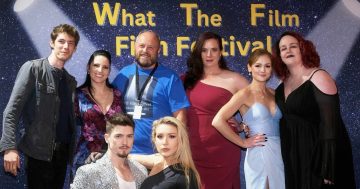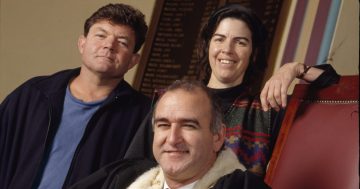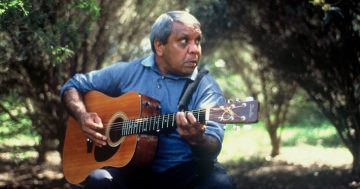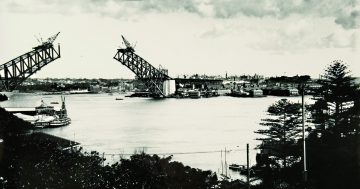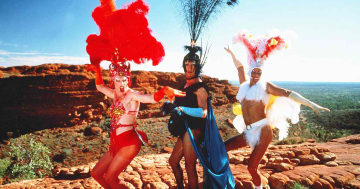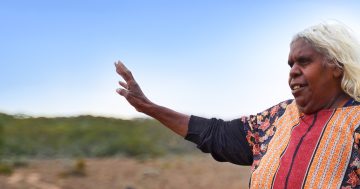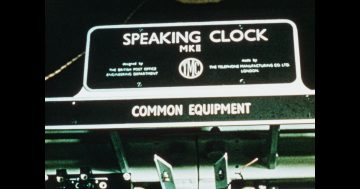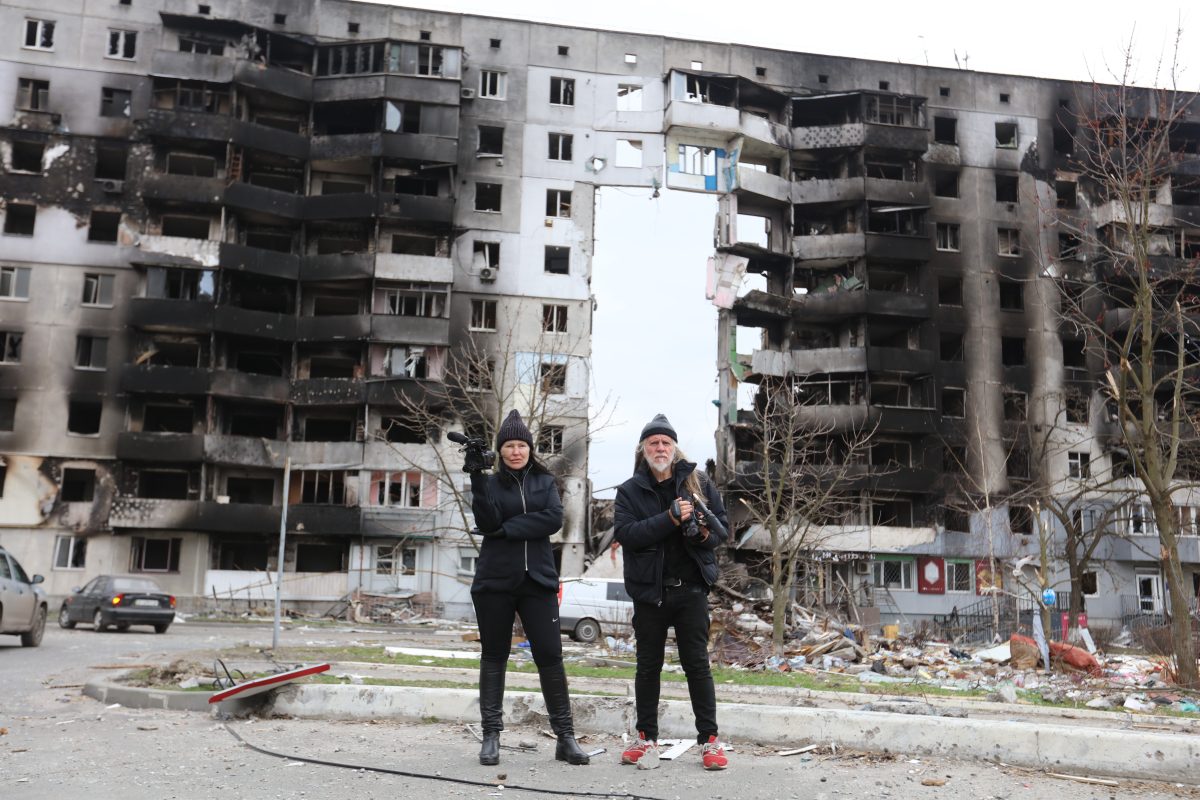
Film-maker George Gittoes and his partner Hellen Rose outside the bombed-out remains of an apartment block in Ukraine. Gittoes will conduct a Q&A about his latest documentary at the NFSA on 4 July. Photo: Supplied.
As the world watches the horrors unfolding in too many war zones across the globe, chances are George Gittoes is either in the thick of it, has just left it, or is on his way back in there.
For him, it’s all about the story – often a story no-one can tell as accurately from a distance.
The acclaimed artist and film-maker has been documenting conflict for 30 years – from helping to rescue babies in Rwanda to today where he transforms through his art, the destruction and tragedy that is Ukraine. In between, he has been in Afghanistan and is soon heading to Gaza.
A rare breed of film-maker and artist, who uses both skills to tell the real story of conflict, Gittoes works with his partner, performance artist Hellen Rose. Not long back from the Ukraine war zone, they visited just after the Russian invasion.
“We were right near where the revolution happened,” he said. “Imagine seeing tanks come right up the street where we were, it was like a war movie … but we watched the Ukraine army bravely keep them away.”
His latest documentary, Ukraine Guernica – Art Not War, focusses on the creativity and resilience of frontline artists responding to the Russian invasion of Ukraine and the withdrawal of foreign forces from Afghanistan. It will premiere at the National Film and Sound Archive in Canberra on 4 July.
For Gittoes, it’s all about transforming destruction and tragedy into works of art, which in turn, become community-building projects. “When people there saw that we had come from as far away as Australia to help them, they were overwhelmed.”
Gittoes said he was often asked if the creation of his art, from such devastating situations, was cathartic for him. His answer: a resounding “no”.
“I’ve been doing this for such a long time,” he said, “that it’s not cathartic.
“In Rwanda, hundreds of people were killed around me. In Gaza, I’ve already lost six friends.
“People tell me I’m one chop short of a barbie, but it’s just that I’ve never been a fearful sort of person. If you’re doing good you don’t get damaged, you don’t have fear.
“I really feel I have an obligation to go to these places, tell their stories, and do what I can do to help. Like a paramedic in some ways, I suppose.
“You have to get these stories out.”
Gittoes said it was increasingly difficult these days for documentary-makers to get their films out because of the change in the way people now watched films – via streaming services.
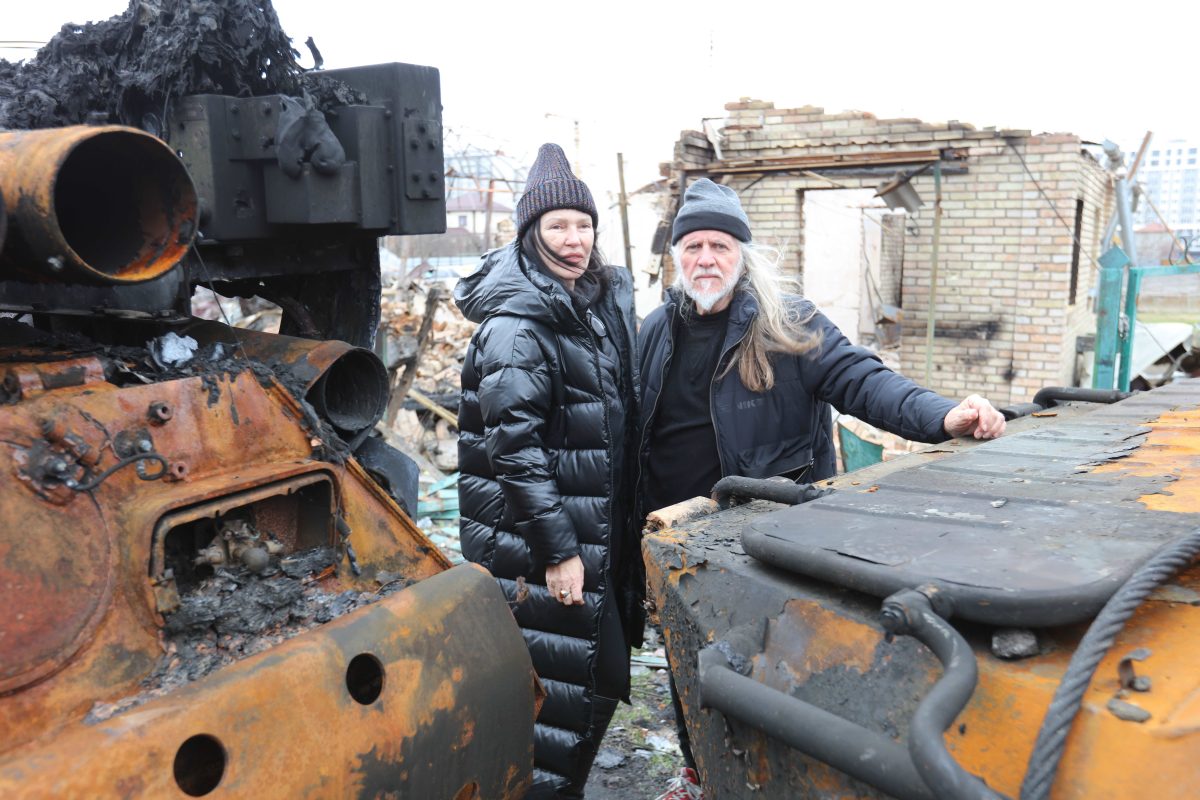
Hellen Rose and George Gittoes in war-torn Ukraine filming their documentary about the conflict with Russia. Photo: Supplied.
He said he couldn’t afford to wait for funding confirmation from the likes of ABC or Screen Australia before he set off to a war zone. “It will be over by the time the money comes through. You have to be able to react straight away to get the real story.
“That’s why it’s so hard for independent film-makers. You end up having to sell your house to pay for it.
“But I’m one of the lucky ones,” he said. “I can sell a painting for more than I could probably get from the ABC to fund the documentary. It all goes into making these films.”
Gittoes will answer questions about Ukraine Guernica – Art Not War via Zoom at the National Film and Sound Archive in Canberra on Thursday 4 July at 6pm. Bookings essential.












